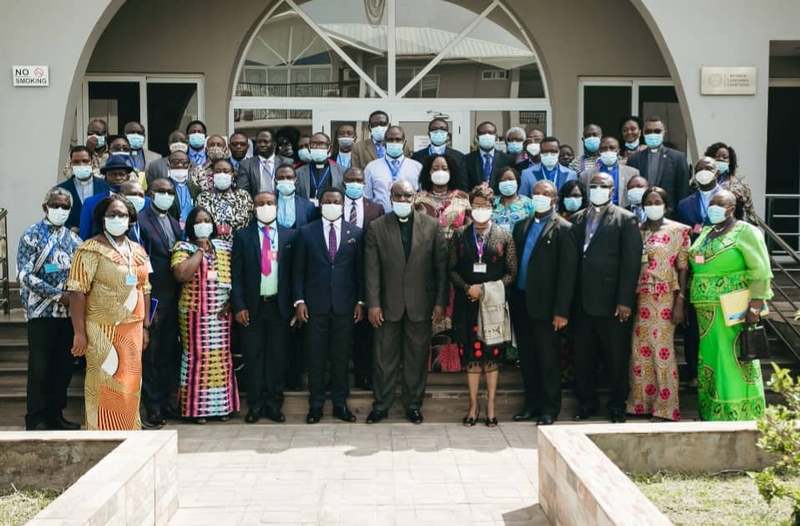Deputy Minister for Education, Rev. John Ntim Fordjour is urging educational stakeholders to help ensure students who go through the academic system are imbibed with 21st century skills and essential moral values.
He says conscious efforts must be made to ensure students who go through the educational system walk away with not just skills that meet the demands of this new age, but also have moral values that the entire society will be proud of.
“While it is imperative to shift focus of education from humanities to sciences in order to create a population which possess the relevant skills required for our 4th industrial revolution era, we must also endeavor to educate a people who have a heart for humanity, conscience, and possess essential moral and social values,” he remarked.
This he said “can be achieved through the use of the hidden curriculum which many countries have adopted to instill national values in their citizens.”
Rev. Ntim Fordjour made these remarks in a speech at the 3rd Annual Education Consultation for heads of Presbyterian Education Institutions at Abokobi near Madina in Greater Accra.

The forum which was organized by the Education Unit of the Presbyterian Church of Ghana brought together all heads of the various Presbyterian educational institutions to review and take stock of work that has been done over the last one year. The meeting also did some brainstorming on ways to improve the quality of education in schools. Moderator of the Presbyterian Church of Ghana, Rt. Rev. Prof. Joseph Obiri Yeboah Mante, Vice-Chancellor of the University of Ghana, Prof. Ebenezer Oduro Owusu, and former Chief Justice, Her Ladyship Justice Sophia Akuffo, all participated in the meeting.
Speaking on behalf of Education Minister Dr. Yaw Osei Adutwum as the special guest of honor, the deputy minister said government is rolling out an Education Strategic Plan to transform the country’s education.
He said key to the plan is increasing the population of students who pursue science focused from the current 40% to 60% by 2030. The plan will also expand access to tertiary education (Gross Tertiary Enrolment Ratio) from the current 18.8% to 40%. He is confident this will adequately equip Ghanaian youth for the new jobs that will dominate the world in the 21st Century.
“Research has it that in the next 20 years, 65% of jobs currently available will be automated and will no longer be available on the job market, particularly for children who are currently in primary school,” Rev. Ntim Fordjour observed.
“The World Economic Forum has also given indication of 10 emerging and top 10 declining jobs. The emerging jobs are principally centered around artificial intelligence, robotics, mechatronics, ICT, biomedical engineering, etc. Most of the jobs that the forum has predicted are fizzling out are unfortunately the skills currently being offered in most of our tertiary institutions,” he explained.
The Deputy Minister noted that “to position our workforce competitive for the world of work and to be equipped to solve some of the world’s complex problem, there is an urgent need for a strategic shift.”
He says government is committed to championing these transformations and called on other stakeholders to support it.

